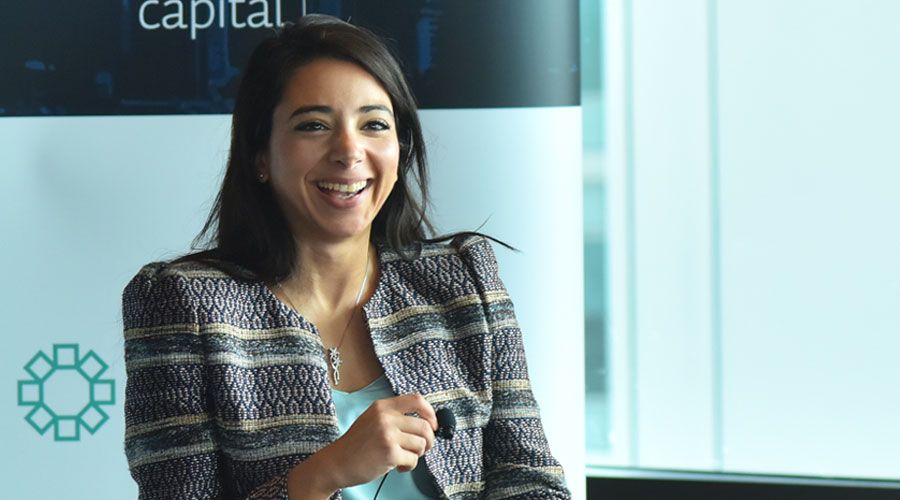In conversation with Ola Doudin of the UAE's BitOasis

Ola Doudin co-founded BitOasis, the Middle East’s first cryptocurrency exchange back in 2015. Its platform enables users to buy and use digital wallet assets like Bitcoin, Ethereum and Stellar. The company expanded its service to Egypt, Jordan and Morocco late last year and is hoping to become the first fully licensed and regulated cryptocurrency platform in the region.
Prior to BitOasis, Doudin worked in London at Ernst & Young in an IT advisory role before moving to the Middle East to work with startups. She has spent much of the past year working closely with regulators to help draw up regulations for cryptocurrency and blockchain and is working on securing the cryptocurrency license from Abu Dhabi Global Market and Central Bank of Bahrain in the first quarter of this year.
Cryptocurrency is still a nascent sector in the Middle East, but interest has been growing, particularly from regulators keen to forge ahead with financial technology (fintech) services.
How did you end up as a co-founder of BitOasis?
My interest in Bitcoin was a coincidence. I was reading technology forums and stumbled on a post on Bitcoin, it was a very anarchist post and I thought that’s a crazy concept, how can anyone create a peer-to-peer (P2P) currency to replace central banks? But what if it actually works? I started reading more and more of the scientific papers on the concepts behind Bitcoin, which made a lot more sense to me. I’m a technologist at heart, I’m more convinced about concepts and technology versus purely politically charged narratives. So I started connecting with people online and met my two co-founders in a meetup.
How did you know it was the right time to leave your former job?
Any other job became a waste of time when I became convinced this was the future. I wanted to do something here, I didn’t want to pack my bags and go to the US. If you decide to start a business, if you’re not going to make it big, then what’s the point? If you work hard, if you believe in your idea and your team, and they believe in you – it works. It requires a lot of dedication and a very talented team and investors that believe in that mission and building an ecosystem around your idea to have a foundation to scale.
What is the cryptocurrency space like in the Middle East?
In the last 12 months there has been growing interest in crypto which has been driven by price. A lot of the adoption is happening organically, the community building is also happening. What we’ve seen specifically in markets like Egypt and Morocco, some of that adoption is being driven by a lack of online payment systems. We’re just getting to a point where we’re on the right track. It’s a time where there are a lot of narratives around fintech, across corporates to entrepreneurs and investors and regulators are wrapping their head around it.
Cryptocurrency has crashed significantly over the past year, what’s been the impact on BitOasis?
When it comes to digital assets, we’re still in the investment phase. The growth and adoption have mostly been driven by [the falling] price. The biggest application here is using it as an investment, but we do see a small percentage using it for utility apps, getting paid, sending money, things of that nature which takes more of a financial services form.
What will the crypto and blockchain industry look like over the next few years?
We’re currently no longer owners of our own data, it’s all being centralised on networks that have become honeypots for hackers. The whole premise of having decentralised protocols and protection of consumers is for data and identity. The world has become completely digitised but without actual protection laws for consumers.
Distributed decentralised networks defragment the internet and rebuild it based on what consumers want, not what those large companies want where everything is currently based on ads and how to get consumers to spend more. You’re putting power back to the individual versus large companies that are becoming more and more of a risk to consumers.
I think we will get to a point where people will transact on blockchain systems based on decentralised protocols for example Bitcoin for finance, Ethereum for decentralised applications, and Initial Coin Offerings where some are using it as an alternative form of fundraising.
Wamda Capital has invested in BitOasis


